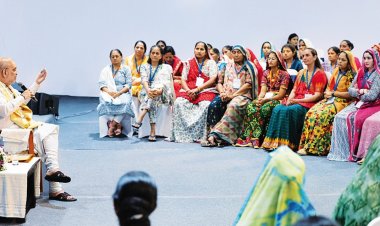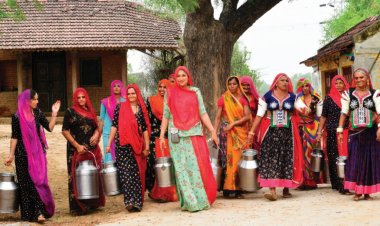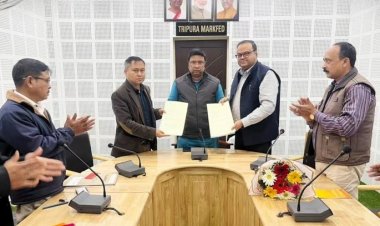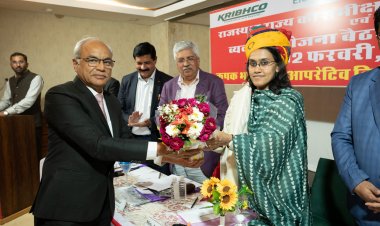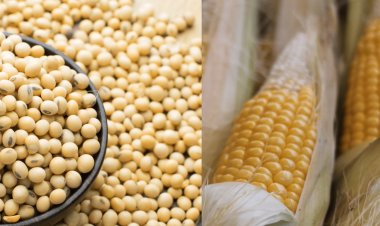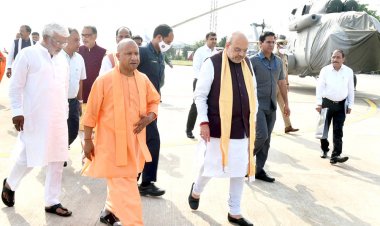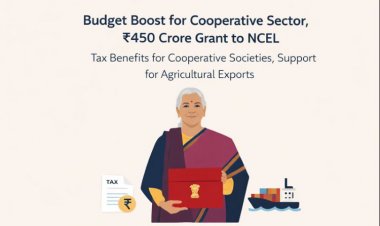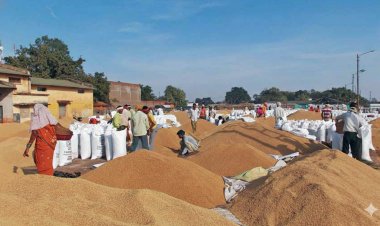Indian agriculture can grow only when consumer is ready to pay more: Dr RS Sodhi
The topic for the second session of the Rural Voice Agriculture Conclave and NACOF Awards 2022 was “Role of cooperatives, agri start-ups and FPOs”. The participants were Dr RS Sodhi, Managing Director, Amul; Dr Chandrapal Singh Yadav, Chairman, Kribhco; and Dr DN Thakur, President, Sahakar Bharati. Ajay Vir Jakhar, Chairman, Bharat Krishak Samaj, was the moderator.
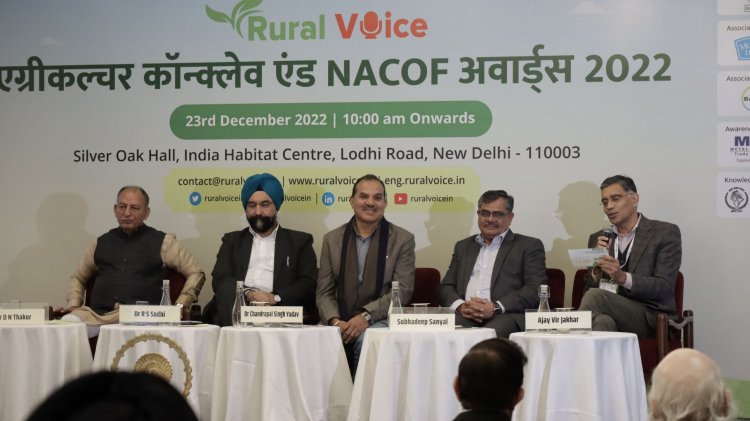
Dr RS Sodhi, Managing Director (MD), Amul, said that Indian agriculture could grow only when the consumer was ready to pay more. He was speaking at the second session of the Rural Voice Agriculture Conclave and NACOF Awards 2022 that discussed the “Role of cooperatives, agri start-ups and FPOs” in New Delhi on December 23.
Dr Sodhi started from what NITI Aayog Member Prof. Ramesh Chand had said in the first session — that maximum growth is being witnessed in those sectors where the government's intervention on the price front is minimum.
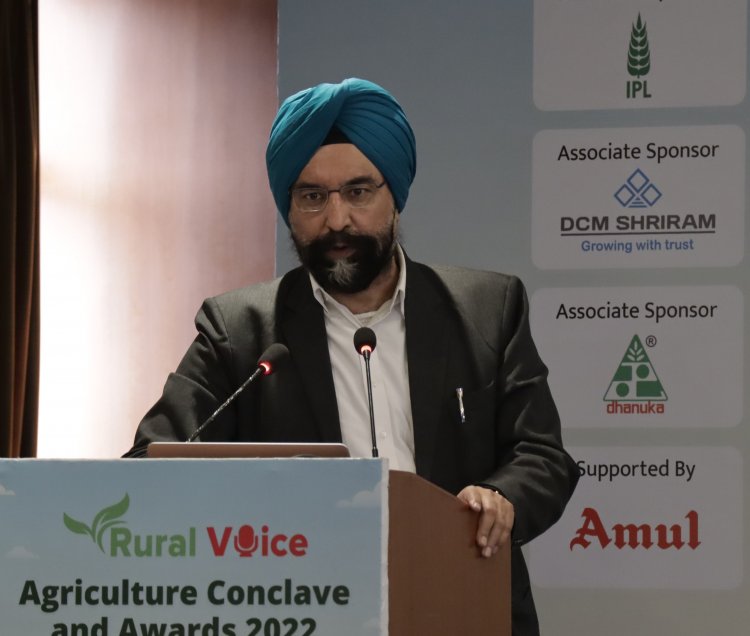
Furnishing some data, Dr Sodhi said that in the past 50 years, the growth rate of milk production had outpaced that of foodgrain production. It is to be noted that there is no MSP in the dairy sector. According to Dr Sodhi, MSP is only a part of the agricultural economy.
The benefit of the MSP or subsidies, said Dr Sodhi, does not go to the farmer but to the consumer.
Dr Sodhi said that the supply chain efficiency was much better in the dairy sector in India. According to him, “the cooperative sector has set a benchmark that even the private sector now has to match.” Farmers get 70-80 per cent of the milk price. Thus, on the one hand, farmers are happy that they get good prices for the milk they sell. And, on the other hand, consumers are happy that they are getting the commodity at a reliable price without much fluctuation.
Cooperatives bring about competition in any sector and benefit the small farmers and consumers, said Dr Sodhi. This reduces variations in any sector and subsequently leads to growth.
Dr Sodhi said that the urban-rural disparity was growing. This can be stopped only when the consumer is ready to pay more. And only then can Indian agriculture grow.
Need to realize slogan of Sahakar se Samriddhi: Dr Chandrapal Singh Yadav
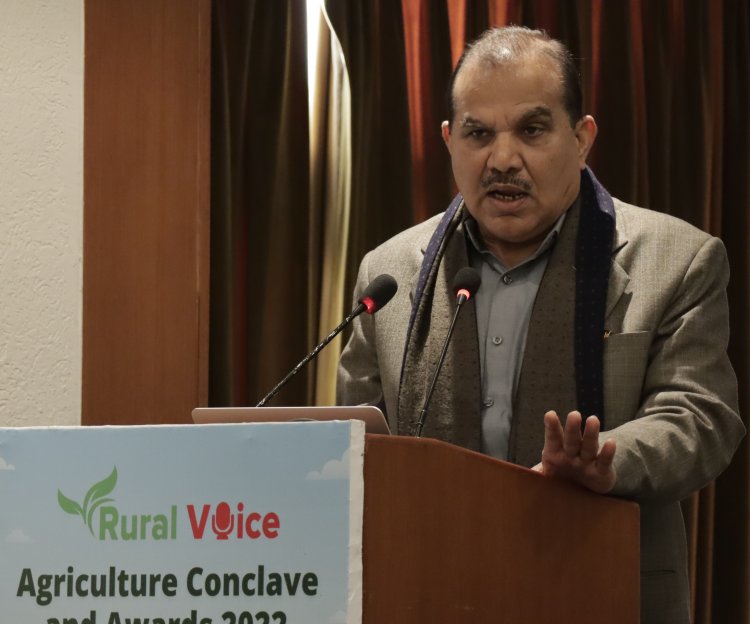
Congratulating Rural Voice on having given voice to the majority, Dr Chandrapal Singh Yadav, Chairman, Kribhco, paid tribute to farmer leader and former Prime Chaudhary Charan Singh on the occasion of Kisan Diwas.
Dr Yadav said that there were about 8 lakh cooperatives in the country and about 32 crore people were associated with these cooperatives directly or indirectly. The Primary Agricultural Credit Societies (PACS) have a big role to play in making finance and fertilizers available to the farmers and in taking their produce to the market.
We need to realize the slogan of Sahakar se Samriddhi (Prosperity Through Cooperation), said Dr Yadav. The youth need to be linked to the cooperatives to address the challenges of unemployment, poverty and inflation. Dr Yadav also felt that cooperative societies should ensure storage facilities as the farmer does not have the holding capacity.
Citing the examples of Gujarat and Maharashtra, Dr Yadav concluded that strengthening the cooperatives will strengthen the rural economy.
Cooperation comes from heart, not too many rules needed: Dr DN Thakur
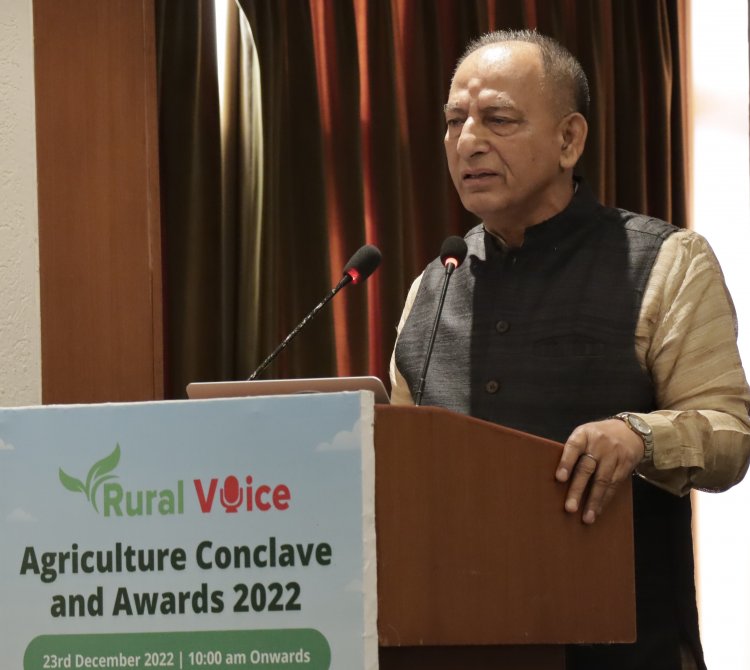
Dr DN Thakur, President, Sahakar Bharati began with a disclaimer: “I’m not an expert; I am a practitioner.” He further said that cooperation came from the heart; it could not be governed by rules. A cooperative can be registered through rules but not run merely by them. All that is required is basic guidelines.
The government is not competent to administer MSP, said Dr Thakur. Besides, if the government legalizes MSP, the food subsidy bill will double. He was rather for the creation of a National Cooperative Food Grid and a National Farmer Prosperity Fund.
Dr Thakur was highly critical of the distribution of free foodgrains. Quoting a couplet from the poet Rahim, he said that receiving freebies robbed you of self-respect. And a nation full of lazy people bereft of self-dignity can never develop.
If DBT comes in, how will cooperatives sustain?: Ajay Vir Jakhar
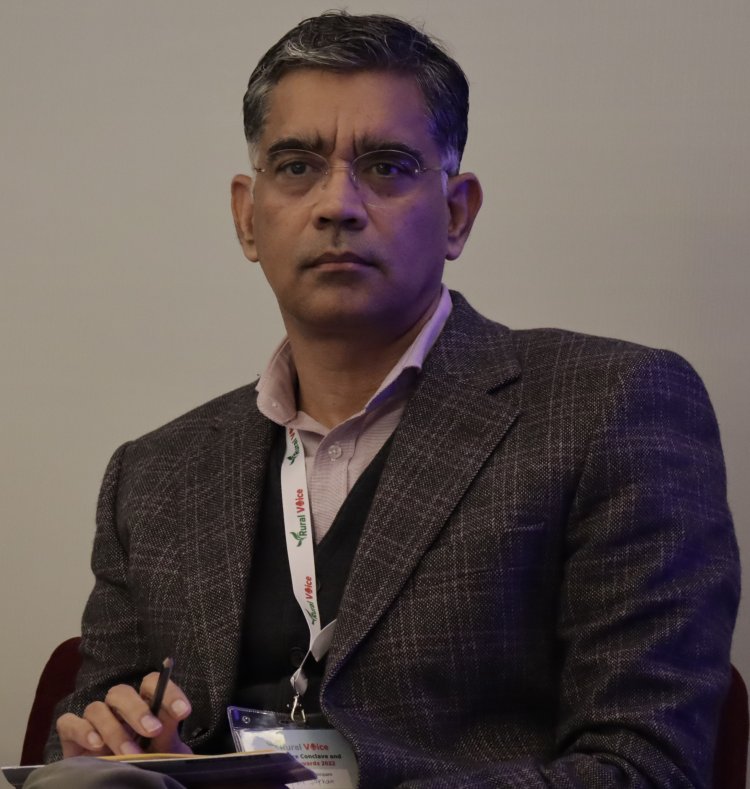
The moderator Ajay Vir Jakhar, Chairman, Bharat Krishak Samaj, raised pertinent questions. He said that several institutions, including farmer organizations, were in favour of fertilizer subsidies to be given as Direct Benefit Transfer (DBT). If this happens, how will village cooperative societies sustain themselves?
Another question that he raised was about Farmer Producer Organizations (FPOs). Are FPOs a solution to a problem or a problem themselves?
Jakhar also said that he was not in favour of the government accessing the information related to godowns. He thought sharing of information should be reciprocal. “As long as the industry does not tell us what their godowns have, why should we cooperatives tell what our godowns have?”
Finally, Jakhar said, “Can government schemes like MSP, fertilizer subsidies and PM-KISAN make the lives of farmers with small landholdings happy? Can they lead a life of dignity with the help of these?” The responsibility of the government, he felt, is not the income of their farmers, but their livelihood.



 Join the RuralVoice whatsapp group
Join the RuralVoice whatsapp group

















